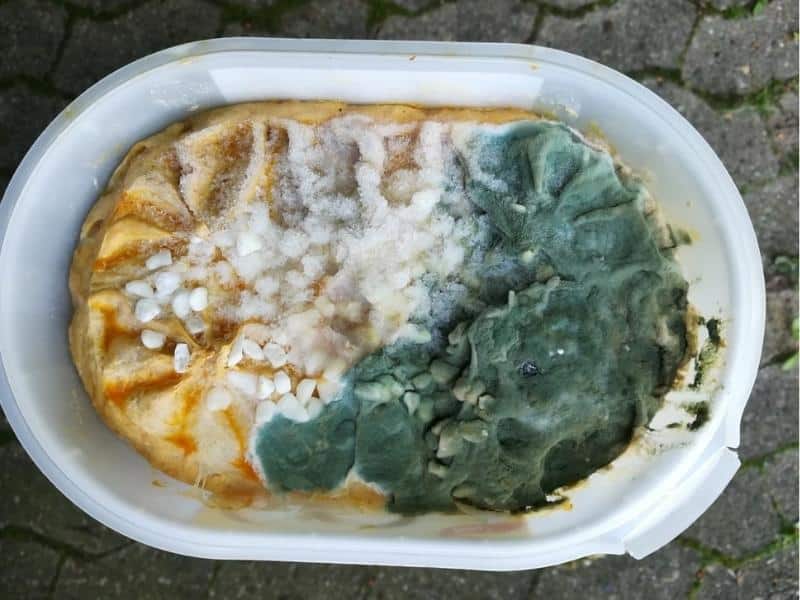Does Delicious Ice Cream Go Bad?
Yes, ice cream goes bad because bacteria grow in ice cream — even in the freezer — making the ice cream unsafe to eat. Ice cream can be preserved longer by storing it in the freezer at 0°F, but ice cream’s freezer life is also limited.
Ice cream’s lifespan is lengthened by:
- Storing ice cream unopened
- Storing opened ice cream in an airtight container
- Putting opened ice cream back in the freezer as soon as possible after opening it
Ice cream’s lifespan is shortened by:
- Not sealing the container properly after opening the ice cream
- Refreezing ice cream that has started melting
- Eating ice cream directly from the tub with a spoon, and then keeping the leftovers in the freezer
How Long Does Ice Cream Last?

On average, ice cream lasts about 2–3 months in the freezer.
Types of Ice Cream Shelf Life
Unopened ice cream has a longer freezer life than opened ice cream. Once the ice cream has been opened and is exposed to air the lifespan will be shorter. Opened ice cream lasts up to six weeks in the freezer, while unopened ice cream is good for three months.
Eating opened ice cream straight from the tub, and putting the spoon from your mouth back into the tub, introduces bacteria from your mouth into the ice cream. These bacteria continue to multiply, causing the ice cream to spoil quickly.
Ice creams with a heavy cream content last longer than low-fat ice creams, sorbets, or sherbet because the cream is less likely to form ice crystals. Water-based and plant-based ice creams go bad sooner because the moisture in the ice cream forms ice crystals.
Homemade ice cream goes bad after about two weeks because this ice cream doesn’t contain preservatives.
How to Tell if Ice Cream is Spoiled

The most common ways of checking if ice cream has gone bad are:
- Appearance — If there is a layer of ice crystals on top of the ice cream and on the inside of the lid, the ice cream is on its way to going bad. If the ice cream is full of ice crystals, or is gooey and slimy, the ice cream is spoiled and isn’t safe to eat
- Smell — If the ice cream has a sour or unpleasant smell, the ice cream is spoiled and shouldn’t be eaten
- Taste — spoiled ice cream tastes sour or bitter and has a grainy texture, unlike the smooth, creamy texture of fresh ice cream
Can You Eat Expired Ice Cream?
Yes, you can eat expired ice cream. Unopened ice cream is usually safe to eat for 6–8 weeks after the “best before” date, while opened ice cream is good for up to a month after the “best before” date, provided the ice cream has been stored correctly in the freezer.
Eating expired ice cream more than two months after its “best before” date can make you sick, because the ice crystals that form on ice cream introduce moisture, allowing bacteria to multiply. Once these bacteria reach a certain level, ingesting the bacteria is dangerous.
Best Way to Store Ice Cream

Storing ice cream at a temperature of 0°F or colder keeps the ice cream fresh. The best way to store ice cream is in a sealed container in the back of the freezer, instead of in the door, to prevent the ice cream from being exposed to higher temperatures every time the freezer is opened.
Once ice cream has been opened, either place a sheet of cling film on the surface of the ice cream, under the lid, or wrap the entire container in cling film to prevent ice crystals from forming.
Transferring opened ice cream from its original carton to a good-quality storage container with an air-tight seal helps to preserve the ice cream’s freezer life.
When buying ice cream, avoid breaking the cold chain and store the ice cream in a cooler bag with an ice brick until you can put it in the freezer. Keeping the ice cream as cold as possible while buying and transporting it helps to preserve its freezer life.
Don’t refreeze ice cream that has melted. As ice cream warms to room temperature, bacteria begin to multiply in the ice cream. Refreezing the ice cream doesn’t kill the bacteria.






